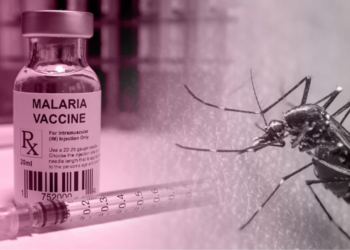The Federal Government through the Coordinating Health minister, Prof. Muhammad Ali Pate, unveiled Nigeria’s first locally manufactured glucose meter facility, Colexa Biosensor Diagnostics Manufacturing.
Colexa Biosensor Diagnostics Manufacturing, a wholly Nigerian-owned enterprise, is one of Nigeria’s premier health technology companies for the local manufacturing of blood glucose meters.
Coming a few weeks after the establishment of the presidential unlocking Healthcare value chain initiative, and the signing of the Health Sector Renewal Compact, Prof. Pate said that the move underscored the bold ingenuity and ample resourcefulness of the private sector.
Commissioning this week, of the 𝐂𝐨𝐥𝐞𝐱𝐚 𝐁𝐢𝐨𝐬𝐞𝐧𝐬𝐨𝐫 𝐃𝐢𝐚𝐠𝐧𝐨𝐬𝐭𝐢𝐜𝐬 𝐌𝐚𝐧𝐮𝐟𝐚𝐜𝐭𝐮𝐫𝐢𝐧𝐠 facility in Lagos demonstrates the resilience of the Nigerian spirit and power of visionary entrepreneurship.
And, I salute the remarkable courage of co-founders,… pic.twitter.com/9GGwP6n25r
— Muhammad Ali Pate (@muhammadpate) December 20, 2023
What you should know
- With non-communicable diseases (#NCDs), including the rising burden of diabetes, projected to make up to 20-25% of Nigeria’s disease burden by 2030, Pate disclosed that the federal government is determined to promote policies and programs that would help reduce the financial pains faced by our people in accessing timely diagnosis and treatment.
- Colexa Biosensor’s potential to scale up production from the current capacity of 3.6 million packs per year to 10.8 million, way above local needs, also presents an opportunity for export as well as other economic benefits for Nigeria, including job creation along the value chain.
- According to the health minister, the federal government, as part of initiatives to attract private sector collaboration, is committed to unlocking new investments in the nation’s healthcare-delivery space, restructuring the cycle of health product manufacturing in favour of African and Nigerian markets, to protect health, create jobs and economic value.
Why It Matters
- In 2021, the International Diabetes Federation (IDF) reported that 3.6 million Nigerian adults have diabetes, with a prevalence rate of 3.7%. In the broader African Region, 24 million people are affected, and this number is projected to surge to 55 million by 2045.
- Diabetics rely on blood glucose meters to measure and monitor their blood glucose levels.
- Currently, 3.6 million Nigerians with diabetes rely on imported foreign blood glucose meters, making them vulnerable to market fluctuations and forex volatility.
- The local manufacturing of glucose meters not only ensures affordability and accessibility but also brings economic benefits to the country.





















